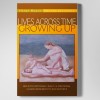Click Here to Read: What Drives Success? By Amy Chua and Jed Rubenfeld in The New York Times on January. 25, 2014.
Kid-Rearing (This is like, so Un-PC… But is it useful?)
On Tiger Mom’s (and Dad’s) new book
Nathan Szajnberg, MD, Managing Editor
January 26, 2014
Amy Chua and Jed Rubenfeld, husband and wife, father of two successful daughters, law professors at Yale, write “What Drives Success,” in Sunday’s NY Times prior to their forthcoming book, “The Triple Package: How Three Unlikely Traits Explain the Rise and Fall of Cultural Groups in American.”
There message is crisp, well-documented, clearly stated and likely unpopular or at least un-PC. On the other hand, besides the clear data they present to back their arguments, its importance for both parents and educational policy (and that their daughters were scrutinized by the popular press after Chua’s first book and they pass muster).
They begin with one (American) measure of success: earnings. Average income is two-fold for specific ethnic groups: Indian-, Persian-, Lebanese- and Chinese-Americans. Then there are the Jews, two percent of the population, but one third of the Supreme Court, two-thirds of all Tony award winners and one third of American Nobel prize-winners. What gives here? And specifically, what are the three (child-rearing) elements they claim is found in each of these groups that accounts for such success?
Their terms are a 1. sense of superiority, yet 2. paradoxical “inferiority,” and 3. impulse control. Their article elaborates, but I suggest less provactive terms. 1. A sense that one’ s groups is special in a gifted manner (not special in the sense of feeling vicatmized); a sense that one must work hard to live up to one’s promise (think of someone like Lucien Freud, who felt that he could improve each picture or Newton, who sought elegance in his science). Third, as we learn from early childhood research, those who can control their impulses performed better over the long term (and this was correlated with high I.Q.
See their article and their book to learn more. Before our politicians leap to throw funds at education, they might look more closely at Chua and Rubenfeld’s ideas.



